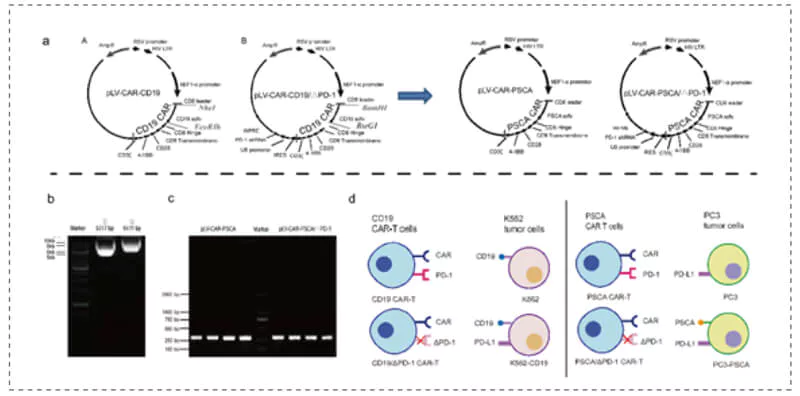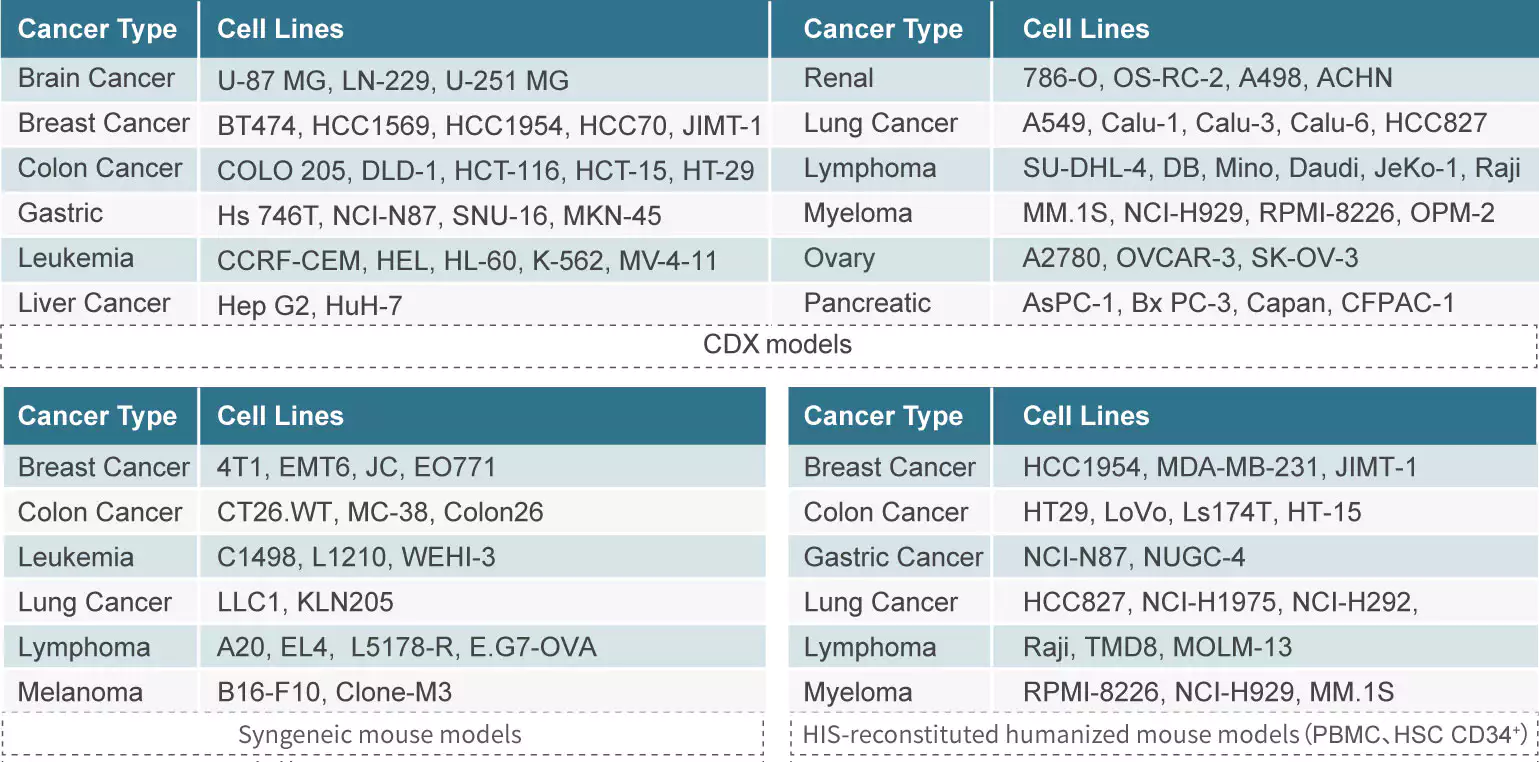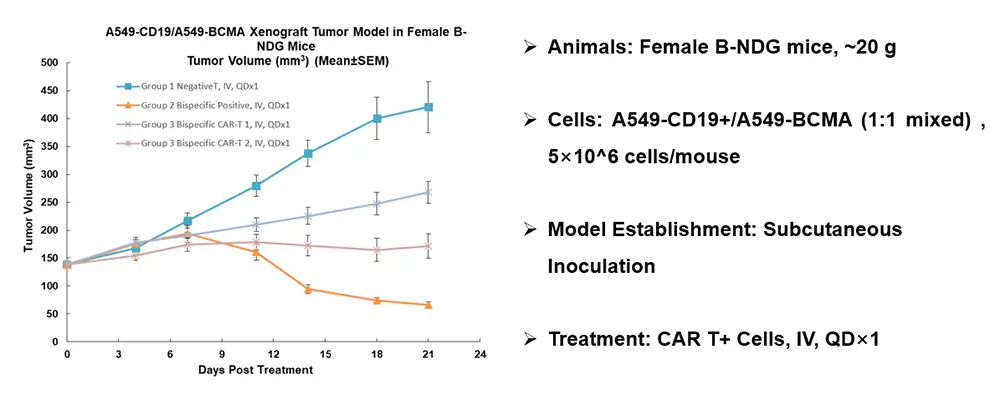Medicilon Cell & Gene Therapy Drug R&D Service PlatformA Story by MedicilonCell & gene therapy has developed by leaps and bounds in recent years, providing the possibility for many refractory diseases. With the rapid development of gene transduction and modification technolCell & gene therapy has developed by leaps and bounds in recent years, providing the possibility for many refractory diseases. With the rapid development of gene transduction and modification technology, delivery vector system, cell culture technology and other technology, breakthroughs have been made in cell & gene therapy, providing a new treatment concept and train of thoughts. Medicilon's preclinical research services cover pharmacodynamic research, drug safety evaluation(www.medicilon.com/services/drug-safety-evaluation/), pharmacokinetic research, bioanalysis, etc. The establishment of a complete gene therapy R&D platform can provide one-stop services for research on pharmacological efficacy, biodistribution and safety evaluation of cell and gene therapy products. Medicilon has established a one-stop research platform for the preclinical research and development of cellular immunotherapy drugs, covering a variety of immunotherapy methods including CAR-T, TCR-T, CAR-NK and TIL cells, etc. Using a wealth of animal models and a variety of advanced analytical techniques, and comprehensively considering the characteristics of different research projects, we have completed a number of preclinical development projects for immunotherapy programs for clients. 01 Pharmacology and Pharmacodynamics of Cell & Gene Therapy Drugs Safety Pharmacology ❖ Potential undesired effects of the study drug on physiological function at doses within or above the therapeutic range ❖ Generally include effects on the central nervous system, cardiovascular system, and respiratory system ❖ Research on other organ systems may need to be supplemented depending on product characteristics In vitro Pharmacodynamic Studies Efficacy testing of cell therapy (such as CAR-T): ❖ Tumor killing rate or proliferation inhibition rate ❖ IFN-γ expression level ❖ Phenotype changes of CAR-T cells Preparation and Evaluation of CAR-T  Plasmid Vector Construction The PD-1 shRNA was integrated into the CAR plasmid, and then transduced into T cells by a lentiviral vector to obtain CAR-T cells with PD-1 silencing function. The results showed that effective silencing of PD-1 significantly suppressed the immunosuppressive effect of the tumor microenvironment and prolonged the activation time of CAR-T cells, resulting in a longer tumor killing effect. PD-1-silenced CAR-T cells significantly prolong the survival of mice with subcutaneous prostate and leukemia xenografts. This demonstrated that PD-1 silencing technology is a suitable solution to promote the therapeutic effect of CAR-T cells on subcutaneous prostate and leukemia xenografts[1]. The plasmid sequencing work in this experiment was completed by Medicilon.  CAR-T Cell Killing Assay  CAR-T cell killing experiments show that CAR-T cell-dependent killing is increased compared with Mock-T cells In vivo Pharmacodynamic Studies Cell Therapy Test Substances ❖ Can be prepared from blood donated by healthy volunteers ❖ Some proof-of-concept studies could be done with alternative products of animal origin ❖ The similarities and differences between non-clinical test substances and clinical samples should be explained in the new drug application Gene Therapy Test Substance ❖ Consider factors such as production process, key quality characteristics (such as titer), preparations for clinical use ❖ If there is species specificity, the activity of the test substance in non-clinical research should be evaluated ❖ If the vector uses an expression tag, the impact of the tag on the supportability of non-clinical trials should be analyzed Detection Methods and Evaluation Indicators ❖ Bioluminescent Imaging (BLI) ❖ Flow Cytometry: Detecting the number of tumor cells in animals ❖ Flow Cytometry, ELISA, MSD: Changes in tumor-related cytokines ❖ Related Parameters: Tumor volume, tumor weight, tumor cell colonization site in animals and median survival period of animals Animal Models Non-clinical research animal models of commonly used cell & gene therapy drugs (Example in the table below, more models could be consulted according to the last contact information)  Immune System Reconstitution Humanized Mouse Model  Pharmacodynamic study of Raji-luc fluorescein-labeled lymphoma cells-induced hPBMC immune system reconstruction mouse model Bispecific CAR-T Efficacy Research: CD19/BCMA  CAR-T cell killing experiments show that CAR-T cell-dependent killing is increased compared with Mock-T cells Pharmacokinetic Study of Cell & Gene Therapy Drugs Points to Consider for Pharmacokinetic Study ❖ Exposure: Gene therapy products should be analyzed and evaluated according to the specific characteristics of the product considering the actual exposure in non-clinical research ❖ Biodistribution: Biodistribution of gene therapy products refers to the distribution, persistence and clearance of gene therapy products in target and non-target tissues in vivo ❖ Shedding: Shedding assays should include testing for infectivity of excreted components Pharmacokinetic (Biodistribution) Detection Technology ❖ Imaging Technology ❖ Flow Cytometry ❖ Immunohistochemical Technique ❖ Quantitative PCR Technology Detection of Distribution of Lung Cell Therapy  The detection results obtained by qPCR and flow cytometry are consistent 03 Nonclinical Safety Evaluation of Cell & Gene Therapy Drugs In toxicology research, a comprehensive safety analysis and evaluation of gene therapy products should be conducted, and the safety of the expression products of introduced genes should also be evaluated if necessary. Gene therapy products should be effectively introduced/exposed in relevant animal species. The non-clinical safety risks of cell therapy (such as CAR-T cells) mainly include: cytokine release syndrome (CRS), reversible neurotoxicity, reduction of B cells, on-target/off-tumor, Graft-versus-host disease (GVHD), tumorigenicity/tumorigenicity of CAR-T cells, etc.  Reference [1] Jing-E Zhou, et al. ShRNA-mediated silencing of PD-1 augments the efficacy of chimeric antigen receptor T cells on subcutaneous prostate and leukemia xenograft. Biomed Pharmacother. 2021 May;137:111339. doi: 10.1016/j.biopha.2021.111339.
© 2023 Medicilon |
StatsAuthorMedicilonCambridge, MAAboutMedicilon is an integrated contract research organization (CRO), providing comprehensive one-stop new drug R&D services for pharmaceutical enterprises and scientific research institutions around the w.. more..Writing
|

 Flag Writing
Flag Writing